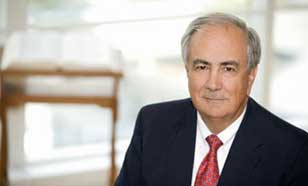A just-issued Court of Chancery decision clarifies, and possibly expands, creditors’ rights. In 2007, the Delaware Supreme Court ruled that a corporation’s creditors may sue its board of directors for violating its fiduciary duties, but only after the corporation became insolvent, in North American Catholic Educational Programming Foundation v. Gheewalla, 930 A.2d 92 (Del. 2007). While creditors continued to be unable to sue directly, Gheewalla did permit them to file derivative suits in those circumstances. For insolvent entities, D&O insurance may provide a previously unavailable source of funds to pay creditors. Hence, Gheewalla was an important decision.
Yet, Gheewalla left some important questions unanswered. Now, Quadrant Structured Products v. Vertin, C.A. 6990-VCL (Del.Ch. May 4, 2015), has answered those questions. Drawing on Gheewalla and a series of Court of Chancery decisions in closely related areas, Quadrant carefully summarizes this area of creditor rights and explains how directors may fulfill their duties to avoid creditor liability claims for breach of fiduciary duty.
This content has been archived. It is available through our partners, LexisNexis® and Bloomberg Law.
To view this content, please continue to their sites.
Not a Lexis Subscriber?
Subscribe Now
Not a Bloomberg Law Subscriber?
Subscribe Now
LexisNexis® and Bloomberg Law are third party online distributors of the broad collection of current and archived versions of ALM's legal news publications. LexisNexis® and Bloomberg Law customers are able to access and use ALM's content, including content from the National Law Journal, The American Lawyer, Legaltech News, The New York Law Journal, and Corporate Counsel, as well as other sources of legal information.
For questions call 1-877-256-2472 or contact us at [email protected]





